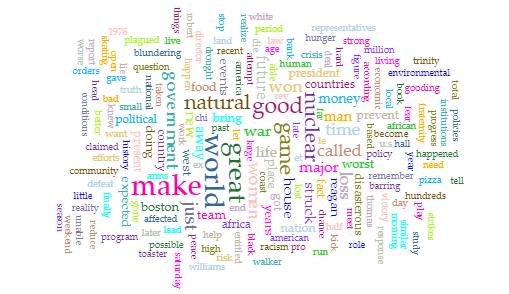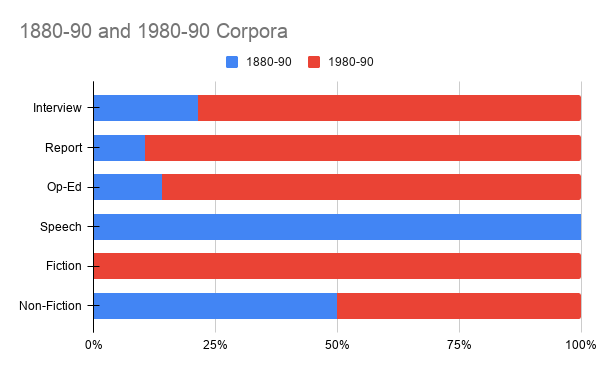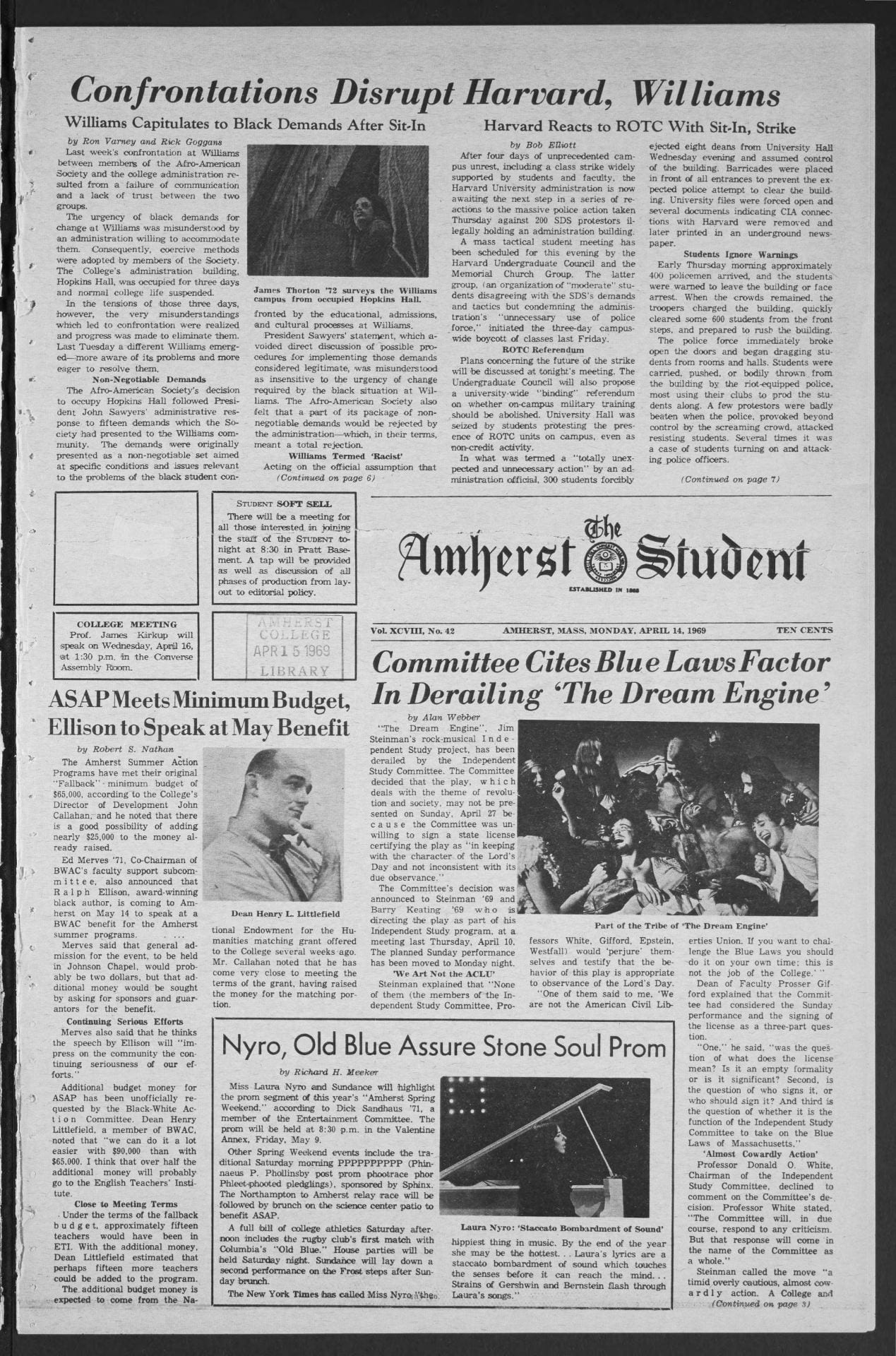Key Results
What are the “disasters” in The Amherst Student across time?
Trends of Modeled Word Frequencies
Disasters were mentioned far less frequently in the 1880-90 corpus than in the 1980-90 corpus. Disasters, the plural form of disaster, is included in the comparison because it commonly refers to a cluster of disasters or disaster in general. “Disasters” are mentioned a little more frequently in 1980-90 than a century ago. “Amherst” and “College” were mentioned less frequently over the century.
Word Cloud Comparison of Keywords

Words associated with disasters in the 1880-90 corpus. Keywords include life, game, won, reverend, play[ed], deal, and pitch.

Words associated with disasters are displayed in this word cloud, their sizes proportional to frequencies of appearance in the corpus. The central image displays keywords for both 1880-90 and 1980-90 corpora.

Words associated with disasters in the 1980-90 corpus. Keywords include nuclear, natural, Africa, future, war, fire, crisis.
What do these “disasters” describe?
Observing the word cloud generation, we see a difference between the keywords displayed in the 1880-90 and 1980-90 corpora. While disasters in the 1880-90 corpus are mainly about athletic game losses and religious discussions, those in the 1980-90 corpus shift to emphasize world and domestic politics, charity work, and call to actions in the face of crisis. Does it mean the scope to which the disasters describe has broadened when social conditions change? Does it imply a change of disaster’s meaning in a century’s time? To further investigate, we identify and use correlated word clusters automated by topic modeling software.
Components and Correspondence
Trends of selected words show that the use of “game” has been less frequent over time, while “future” has been more frequent. Using “disaster” to describe incidents related to “nuclear” appeared to be a product of the 20th-century corpus only, as threats of a nuclear war surfaced in the Cold War. In this sense, ‘disaster’ is indeed being used to describe incidents of greater scale and severity in the 1980s than the 1880s.
“Loom” tracks words’ individual appearances in the two corpora. Incidents that ‘disaster’ describes were limited to the college setting [‘game’, ‘played’, ‘fraternity’, ‘hall’, ‘faculty’] in the 1880-90 corpus. In contrast, incidents that ‘disaster’ describes are less concerned with the campus per se but the nation and the world in the 1980-90 corpus.
Results in the MicroSearch confirm our hypothesis on the change of reference scope for the word “disaster” in The Amherst Student.
Input [‘game*’]: 1980-90 corpus shows a much more sparsely scattered plot than the 1880-90 corpus.
Input [‘government*’, ‘women*’, ‘africa*’]: 1980-90 corpus shows a much more compactly scattered plot than the 1880-90 corpus.
Dominant Topics
- sports, lose, games, performance, athletic, football, season
- academics, discipline, professor, faculty, course, talk, examination
- administration, late, response, ignorance, issue, action, budget
- mythology, Odyssey, goddess, fable, Presbyterian, reverend, admonition
- policy, election, diplomacy, Reagan, war, economy, nuclear
- fire, flood, fraternity, watershed, escape, save, aid
A large percentage of “disasters” describe competitive athletic games, especially a loss by a large margin against traditional archrivals or an individual athlete’s poor performance.
Besides, disaster is a commentary word to describe a distaste for a certain professorial or administrative policy. On an individual level, one might be disturbed enough to categorize it as a disaster. Rarely would this apply to the entire college community at the same time.
“Disaster” also makes frequent appearances in stories not related to real events. The constructed parallel reality submitted by student writers demonstrate a general reception of the idea, but mental preparedness for a real disaster remains unclear.
Genres of “Disaster”
We categorize the writings about “disaster” into the following genres:
- Fiction: short stories and novels depicting imaginary events and peoples in the pre/post disasters.
- Interview: quotes and dialogues transcribing words of another person (non-writer)
- Non-Fiction: poetry and plays that include depictions or allusions of disaster
- Op-Ed: opinion-based commentaries that often respond to a topic in the news report
- Report: fact-based news reports on disastrous incidents
- Speech: remarks by the faculty, student leaders, and administrators in bulk

Op-Eds and Reports Dominate Disaster Genres
Disaster is used more frequently by op-ed and reporting writers, but interviews, speeches, fictions, and non-fictions also occupy at least 25% of the contributed pieces in the corpora. Students not only debate their opinions but also express their sentiments using “disaster”. They learn about disaster-related information as well as literary art.



You must be logged in to post a comment.